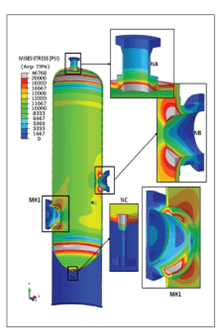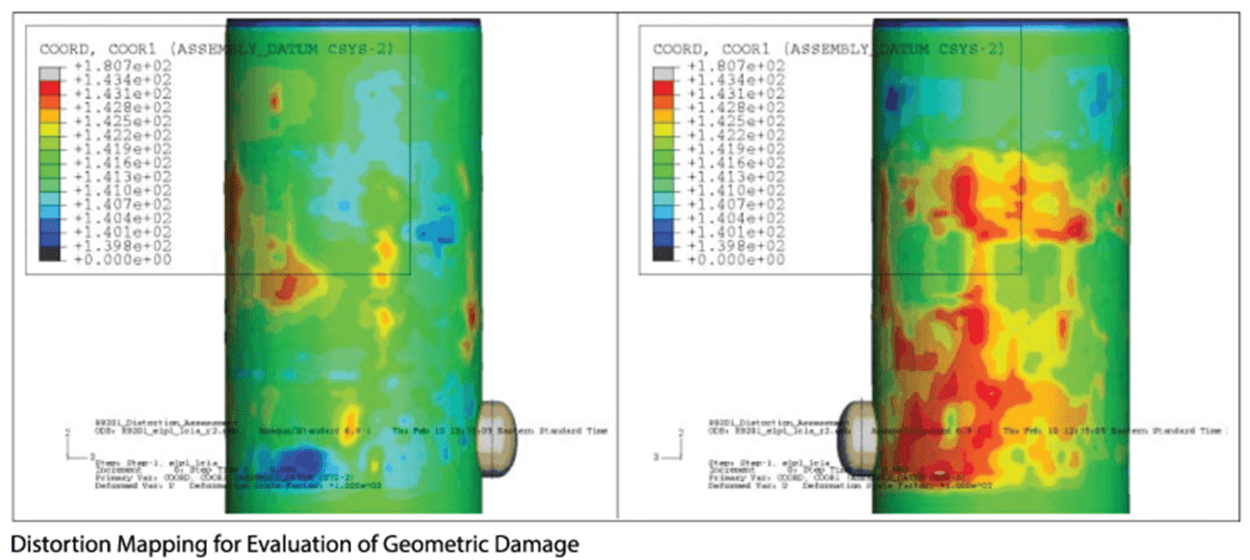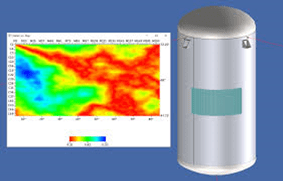API 579 / ASME FFS-1 Standard: Fitness-For-Service VILT Course An FFS assessment is a multi-disciplinary quantitative engineering approach to determine whether equipment is suitable for continued operation.
A 4-day intensive course that emphasizes API 579 Fitness-For-Service (FFS) as an essential guideline for a run- repair-replace decision-making process to help determine if pressurized equipment containing flaws that have been identified by inspection can continue to operate safely for a certain period.
This course will cover the basics of the API 579/ASME FFS-1 standard with a focus on the Level 1 and some Level 2 assessment procedures and their practical implementation. This standard is used to assess the Fitness-For-Service (FFS) of existing equipment for continued operation.
Discussion on damage mechanisms and the importance of identification, inspection techniques for flaw characterization, remaining life considerations, remediation methods and methods for life extension of damaged equipment is also included. Attendees will complete numerous worked examples.
The content will cover all 14 parts of the standard. This will include a detailed discussion of the basic (Level 1) assessments, as well as an introduction to more advanced assessments (Level 2 and 3).
This course does not include the purchase of the standard. The standard may be purchased directly from ASME or is available on document systems such as IHS.



Key Learning Objective:
Upon successful completion of this course, each participant will be able to:
- Present different damage mechanisms, how they occur, and how to avoid them
- Examine damage mechanisms and the importance of identification.
- Review the sections of API 579-1/ASME FFS-1 2016 used for assessing brittle fracture, crack-like defects, corrosion, and creep.
- Understand and apply background information on an FFS assessment.
- Analyze, evaluate, and monitor pressurized equipment for continued operation.
- Solve example problems on the practical application of the techniques incorporated in API 579-1/ASME FFS-1 2016
- The relationship between API 579-1/ASME FFS-1 2016 and other FFS standards.
- Overview of remaining life assessment, remediation, and methods to extend the life of damaged equipment.
Who Should Attend
This course is intended for engineers and engineering managers engaged in the operation, design, analysis, and maintenance of plant facilities. Participants should have a BS degree or equivalent experience in engineering. General knowledge of stress analysis, materials behavior, and fracture mechanics is helpful.
This VILT course is held live with an instructor on our online learning platform.
Certificate of completion will be issued to registrants who successfully attend and complete the
Course Outline
- Introduction – lecture and discussion
- Fitness-for-service Engineering Evaluation Procedure – lecture and discussion.
- Assessment of Equipment for Brittle Fracture -lecture, discussion, and examples.
- Assessment of General Metal Loss – lecture, discussion, and examples.
- Assessment of Local Metal Loss – lecture, discussion, and examples.
- Assessment of Pitting Corrosion – lecture, discussion, and examples.
- Assessment of Hydrogen Blisters and Hydrogen Damage Associated with HIC and
- SOHIC – lecture, discussion, and examples.
- Assessment of Weld Misalignment and Shell Distortions – lecture and discussion lecture, discussion, and examples.
- Assessment of Crack-Like Flaws – lecture, discussion, and examples.
- Introduction to Fracture Mechanics; Level 2 Assessment of Crack-Like Flaws – lecture, discussion, and examples.
- Assessment of Components Operating in the Creep Regime – lecture, discussion, and examples.
- Assessment of Fire Damage – lecture, discussion, and examples.
- Assessment of Dents, Gouges and Dent-Gouge Combinations – lecture and discussion.
- Assessment of Laminations – lecture and discussion.
- Assessment of Fatigue Damage – lecture and discussion
- Examples of Advanced Level 3 Assessment.
- General Discussion and Course Wrap-up In-class problem solving general metal loss, local metal loss, and Level 1 crack assessment.
